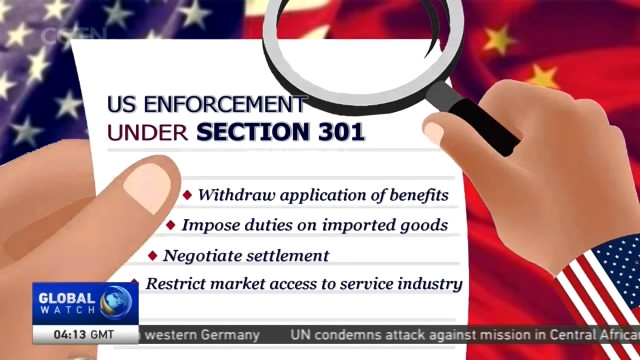
13:18, 04-Apr-2018
Trade Frictions: Review of US's Section 301 of the Trade Act of 1974

Section 301 of the Trade Act of 1974 allows the US president to react to unjustifiable trade practices by a foreign country or organizations. Firms or industry groups can file petitions for Section 301 cases, and US trade representatives can self-initiate such investigations. If the unreasonable trade practice is found to be true, the US could suspend or withdraw the application of benefits of trade agreement concessions, impose duties or other restrictions on imported goods from the designated entity. The country could negotiate a settlement with the foreign entity in the form of compensation or the elimination of trade barriers. The US could also restrict market access to the service industry.
The US government has initiated frequent Section 301 investigations from the 1970s to the 1990s. Targeted countries and organizations include Canada, Japan, and the European Commission. Members of the World Trade Organization have challenged Section 301 as contrary to the WTO agreement. The WTO has ruled that taking such actions against WTO members without securing approval from the WTO is a violation of the agreement.

SITEMAP
Copyright © 2018 CGTN. Beijing ICP prepared NO.16065310-3
Copyright © 2018 CGTN. Beijing ICP prepared NO.16065310-3